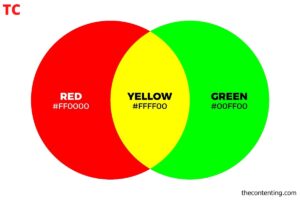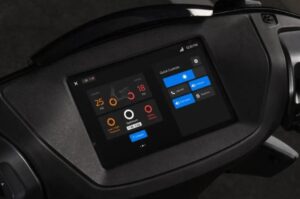
Dog Talking buttons might seem like a fun or innovative idea to use buttons to train your dog to communicate with you through speech, it’s important to understand that dogs do not have the anatomical capability to produce speech like humans do. While dogs can learn to communicate with us in other ways, such as through body language and vocalizations like barks, growls, and whines, teaching them to speak with buttons is not a realistic or practical training method.
That being said, there are some dog owners who have experimented with using buttons to teach their dogs to communicate specific wants or needs, such as “outside,” “play,” or “food.” This is typically done by setting up a board with several large, clearly labeled buttons that the dog can press with their paw or nose. Over time, the dog may learn to associate a specific button with a desired outcome, and may start to use the button to “ask” for what they want.
What are Dog Talking Buttons?
Dog talking buttons, also known as communication buttons, are a set of large, durable buttons that are used to teach dogs to communicate with humans through a form of symbolic language. Each button typically has a picture or word printed on it, such as “outside,” “play,” “food,” or “water.”
The idea behind dog talking buttons is that by teaching dogs to associate a specific button with a desired outcome, they can learn to communicate their needs and wants more effectively with their owners. For example, if a dog wants to go outside, they can press the “outside” button to signal their desire to their owner.
Some dog owners have reported success with using communication buttons to improve their dog’s communication and reduce problem behaviors. However, it’s important to approach this kind of training with realistic expectations and recognize that it is not the same as teaching a dog to speak like a human. It also requires significant time and effort to train and reinforce the behavior.
If you’re interested in using dog talking buttons with your dog, it’s a good idea to work with a professional dog trainer who can help you develop a safe and effective training plan.
Should You Use Dog Talking Buttons For Training?
The decision to use dog talking buttons for training your dog depends on your specific goals and your dog’s personality and learning style. While some dog owners have reported success with using communication buttons to improve their dog’s communication and reduce problem behaviors, it’s important to approach this kind of training with realistic expectations.
Here are a few things to consider before deciding to use dog talking buttons for training:
- Time and effort:
Teaching your dog to use communication buttons requires significant time and effort on your part. You’ll need to train your dog to associate each button with a specific meaning and reinforce the behavior consistently over time.
- Your dog’s learning style:
Some dogs may be more receptive to learning through visual or auditory cues, while others may respond better to physical or tactile training methods. It’s important to consider your dog’s learning style and personality when deciding whether to use communication buttons.
- Realistic expectations:
While some dogs may be able to learn to use communication buttons to communicate basic wants and needs, it’s important to recognize that dogs are not capable of speaking like humans. Communication buttons should be seen as a tool to facilitate communication between you and your dog, rather than a replacement for other training methods.
- Professional guidance:
If you decide to use communication buttons for training, it’s a good idea to work with a professional dog trainer who can help you develop a safe and effective training plan.
How To Train Your Dog To Use Talking Buttons?
Teaching your dog to talk with buttons can be a time-consuming process that requires patience and consistency. Here are some steps you can follow to train your dog to use communication buttons:
- Select your buttons:
Choose large, durable buttons that are easy for your dog to press with their nose or paw. Each button should have a word or picture that represents a specific concept, such as “food,” “water,” or “outside.”
- Introduce the buttons:
Start by introducing the buttons to your dog one at a time. Place the button in front of your dog and say the corresponding word or phrase, such as “food” or “outside.” Encourage your dog to press the button by using a treat or other positive reinforcement.
- Reinforce the behavior:
When your dog presses the button, immediately provide them with the corresponding reward, such as food or a trip outside. This will help your dog to associate the button with the desired outcome.
- Add more buttons:
Once your dog has learned to associate one button with a specific outcome, you can start introducing more buttons. Repeat the same process for each button, introducing it one at a time and reinforcing the behavior with positive reinforcement.
- Expand your dog’s vocabulary:
As your dog becomes more proficient with the buttons, you can start introducing more complex words and phrases. For example, you might introduce a button for “playtime” or “bedtime.”
- Practice consistently:
Consistency is key when training your dog to use communication buttons. Practice with your dog every day, and reinforce the behavior consistently over time.
- Seek professional guidance:
If you’re having trouble training your dog to use communication buttons, or if you’re not sure where to start, it’s a good idea to work with a professional dog trainer who can provide guidance and support.
Are The Dog Talking Buttons Worth It?
The effectiveness and value of dog talking buttons depend on your specific goals and your dog’s individual personality and learning style. Some dog owners have reported success with using communication buttons to improve their dog’s communication and reduce problem behaviors, while others may not see significant results.
Here are some potential benefits and drawbacks of using dog talking buttons:
Advantages:
- Improved communication:
Dog talking buttons can help improve communication between you and your dog, allowing your dog to express their needs and wants more clearly and reducing frustration for both of you.
- Mental stimulation:
Learning to use communication buttons can provide mental stimulation and enrichment for your dog, keeping their minds active and engaged.
- Reduced Problem Behaviors:
Some dog owners have reported that using communication buttons has helped reduce problem behaviors such as barking, whining, and destructive chewing, by giving their dogs a more effective way to communicate their needs and desires.
Disadvantages:
- Time and Effort:
Teaching your dog to use communication buttons requires a significant amount of time and effort on your part, and may not be practical for every dog owner.
- Limited effectiveness:
Not all dogs may be receptive to using communication buttons, and some may not be able to learn to use them effectively.
- Cost:
The cost of purchasing a set of communication buttons can be relatively high, and some dog owners may not be willing or able to make the investment.
Why Are Dog-Talking Buttons Viral on Tik-Tok
It’s true that dog-talking buttons have become a popular topic on social media, particularly on TikTok, with many dog owners sharing videos of their dogs using the buttons to communicate. While the use of communication buttons to train dogs is not a new concept, the viral videos have certainly brought more attention to this training method. Dog talking buttons are part of the Pets of TikTok meta trend. As TikTok has become home to a massive online pet community. The hashtag #petsoftiktok has over 67 billion views on the platform. This interest led to a growing number of DTC startups launching dog talking buttons.
However, it’s important to approach the use of communication buttons with realistic expectations and recognize that dogs are not capable of speaking like humans. Communication buttons should be seen as a tool to facilitate communication between you and your dog, rather than a replacement for other training methods.
Additionally, while the viral videos of dogs using communication buttons can be entertaining and even heartwarming, it’s important to recognize that these are often edited and may not accurately represent the time and effort required to train a dog to use the buttons effectively.
Conclusion:
Remember, teaching your dog to use communication buttons is a time-consuming process that requires patience and consistency. While some dogs may be able to learn to communicate effectively through buttons, it’s important to approach this kind of training with realistic expectations and recognize that dogs are not capable of speaking like humans.
Image Source: Bunny the dog communicates with a series of programmed buttons. Courtesy of Alexis Devine
Read Next Blog:
Caffeine Gummies – Health Benefits and Side Effects







